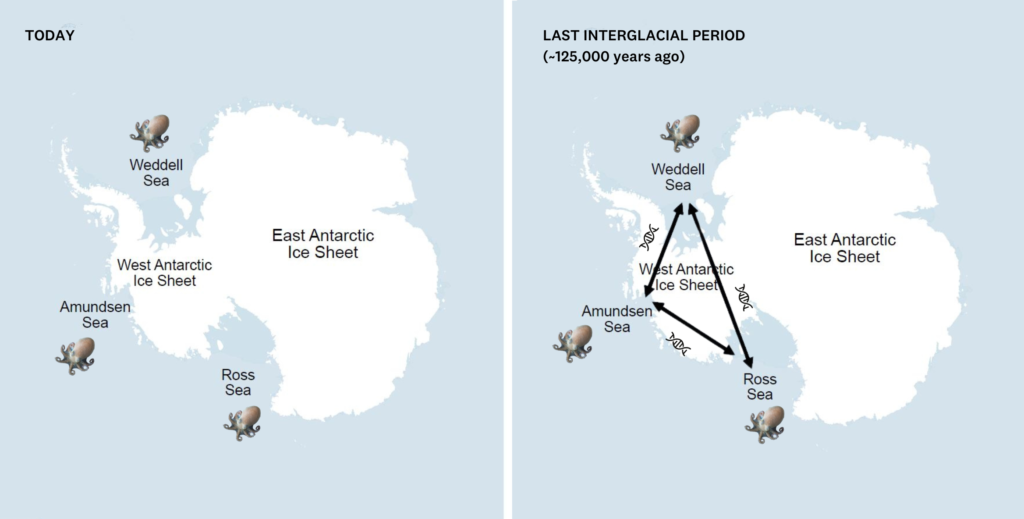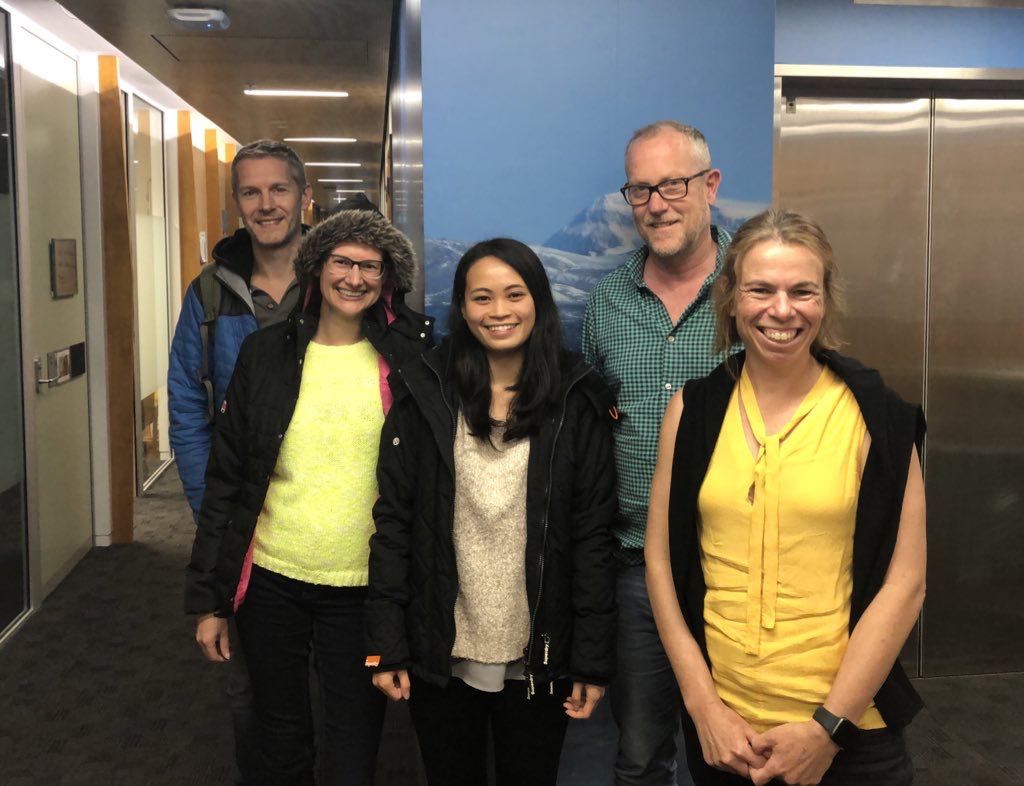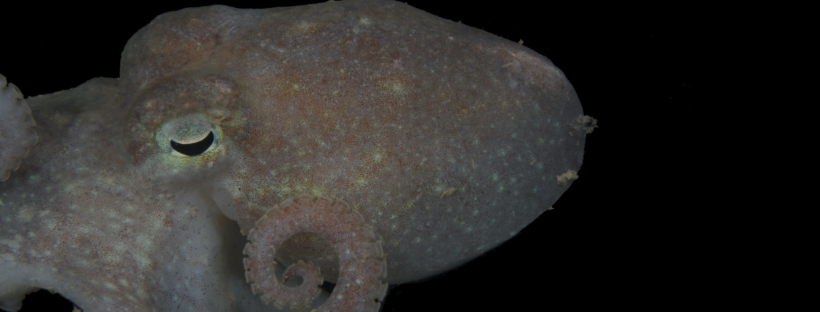Sally Lau led a fantastic study published in Science which used octopus DNA to discover that the West Antarctic Ice Sheet (WAIS) likely collapsed during the Last Interglacial period around 125,000 years ago – when global temperatures were similar to today. This provides the first empirical evidence that the tipping point of this ice sheet could be reached even under the Paris Agreement targets of limiting warming to 1.5 – 2 degrees C.
This research solves a long-running mystery regarding whether or not the WAIS collapsed during the Last Interglacial. This was a period when global average temperatures were 0.5 – 1.5 oC warmer than preindustrial levels, but global sea level was 5 – 10 metres higher than today. What makes the WAIS important is that it’s also Antarctica’s current biggest contributor to global sea level rise. A complete collapse could raise global sea levels by somewhere between 3 and 5 metres.

In the study we employed a novel population genomic approach to answer this question. By employing demographic modelling and comparing the genetic profiles of Turquet’s octopus found in the Weddell, Amundsen, and Ross seas enabled detection of genetic connectivity dating back to the Last Interglacial. This would only be possible if a complete collapse of the WAIS occurred during the Last Interglacial, opening seaways linking the present-day Weddell, Amundsen and Ross seas. This would have allowed octopus to travel across the opened straits and exchange genetic material, which we can detect in the DNA of today’s populations.
This research was interdisciplinary, bringing together geneticists, physical scientists and geologists and was only possible through international collaboration and the use of samples collected over a 30 year time period. Our work was supported by the Australian Research Council, the Australian Academy of Science, an Antarctic Science International Bursary, the SCAR INSTANT programme, Ministry of Business Innovation & Employment, NZ, the Antarctic Science Foundation, Australasian eResearch Organisations and Suomen Akatemia.

Interdisciplinary team work makes the dream work! From L to R: Nick Golledge (Victoria University of Wellington), Nerida Wilson (University of Western Australia), Sally Lau (James Cook University), Tim Naish (Victoria University of Wellington) and Jan Strugnell (James Cook University).
We are delighted with the media attention our paper has received! Some of our favourites include First Dog on the Moon, The New York Times, The Washington Post and CNN. You can also read more about our research in an article we wrote for The Conversation.
